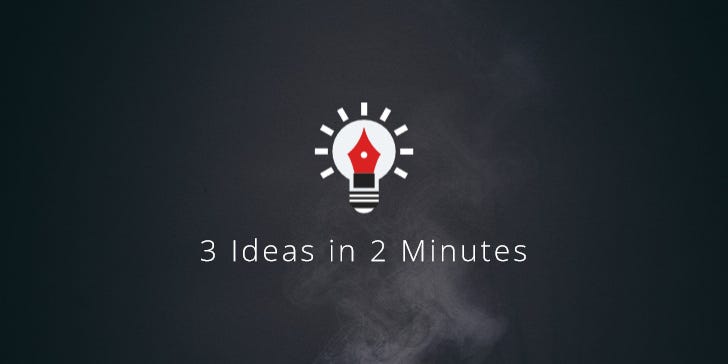#153: Steelmanning, Truth Decay & the Three Stages of Truth
3 Ideas in 2 Minutes on Discovering the Truth
I. Steelmanning
Steelmanning is the painful art of crafting the best possible version, not of your own argument, but that of your opponent. The underlying principle has never been more eloquently described than by English philosopher John Stuart Mill.
He who knows only his own side of the case knows little of that. His reasons may be good, and no one may have been able to refute them. But if he is equally unable to refute the reasons on the opposite side, if he does not so much as know what they are, he has no ground for preferring either opinion... Nor is it enough that he should hear the opinions of adversaries from his own teachers, presented as they state them, and accompanied by what they offer as refutations. He must be able to hear them from persons who actually believe them...he must know them in their most plausible and persuasive form.
—John Stuart Mill, On Liberty
👉 For more on this, check out my long-form articles on Rapoport’s Rules or Steelmanning.
II. Truth Decay
Truth Decay is a term coined by Jennifer Kavanagh and Michael D. Rich in their eponymous 2018 book. The role of facts, so they claim, was more and more diminishing in American society. Truth Decay has four characteristics:
[A]n increasing disagreement about facts and analytical interpretations of facts and data; a blurring of the line between opinion and fact; an increase in the relative volume, and resulting influence, of opinion and personal experience over fact; and lowered trust in formerly respected sources of factual information.
—Jennifer Kavanagh & Michael D. Rich, Truth Decay
As a result, civil discourse was increasingly eroded within society and citizens more and more disengaged from public institutions.
III. Three Stages of Truth
Needless to say, it’s hard to get to the truth. German philosopher Arthur Schopenhauer describes this as a three-stage process:
All truth passes through three stages. First, it is ridiculed. Second, it is violently opposed. Third, it is accepted as being self-evident.
—Arthur Schopenhauer
Before a truth becomes mainstream, it has some way to go. People may dismiss it at first because it conflicts with their current beliefs. If it gains some traction anyway, they may actively fight it. Once a truth is as obvious as the fact that the Earth revolves around the sun, it’s those who didn’t believe it in the beginning who tend to be ridiculed. 🐘
Have a great week,
Chris
themindcollection.com

